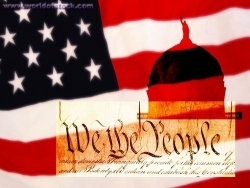Copyright © 2000-2008 WRideNet Technologies A Division of Forever Young International USA All Rights Reserved


WRideNet.net



SHERIFFS OFFICE

WrideNet Sheriffs Office
If you see something you not only find personally offensive, but that you are also convinced might violate the law, file your report by sending an email to sheriff@wridemail.com. WrideNet cooperates with local, state and federal law-enforcement agencies in the investigation and prosecution of various crimes ranging from credit-card fraud to obscenity. NOTE: Any reports filed here by Video Chathosts (VCH) complaining about other VCHs will be ignored, unless the complaint alleges behavior that violates local, state or federal law. (Other VCH complaints should be directed to security@wridemail.com.)
Special notes concerning children: (1) WrideNet forbids any presentation of minors engaged in intimate physical contact or sexual situations, actual or depicted. Any attempt to use the WrideNet platform for pedophilic purposes is immediately investigated and reported to authorities.WrideNet is pleased to cooperate with any law-enforcement agency investigating pedophiles. (2) Explicit erotic material is available only to documented adults who provide validated credit-card information, pursuant to the U.S. Communications Decency Act.
Obscenity Note: WrideNet forbids "obscenity", sometimes also called "hardcore pornography". What is obscenity? Obscenity laws vary from state to state, and often, from community to community. The U.S. Supreme Court says that the determination of obscenity is a function of "local community standards". One potential indicator of what is "obscene" in your community can be found at your local mom-and-pop video-rental center or record store such as "Tower Records", or at your neighborhood bookstore such as "Barnes and Noble" or "Books a Million". If you can openly buy or rent "adult" videos in the back room of the video-rental store, or you can buy an explicit magazine like "Playboy", "Penthouse" or "Hustler" at the bookstore or convenience store, the conduct depicted on those videos and in those magazines is typically not considered obscene, because it is accepted by the local community. In the United States, juries typically regard obscenity as sexual behavior involving one or more of the elements: bestiality, excretory/bodily functions, "fisting" (all five knuckles penetrate), extreme sado-masochism, incest, and depictions of rape and other forms of non-consensual erotic behavior. Juries typically fail to define sexual behavior where the conduct is consensual, non-violent, and involves healthy adults in the privacy of their own home as "obscene". However, because every community is different, you should consult a local attorney familiar with first-amendment law and local obscenity statutes before using the internet to privately share your intimacy with other like-minded adults.
"Whatever may be the justifications for other statutes regulating obscenity, we do not think they reach into the privacy of one's own home." -- U.S. Supreme Court Justice Thurgood Marshall, in STANLEY v. GEORGIA (394 U.S. 557, 1969), one of the only unanimous, 9-0 decisions from the U.S. Supreme Court regarding pornography and obscenity